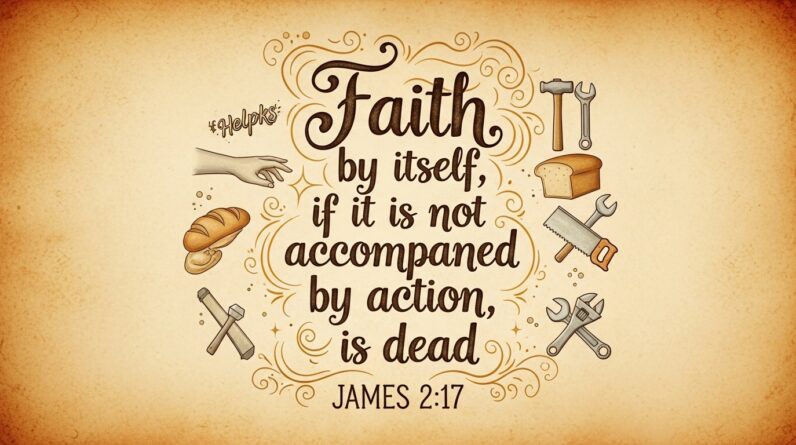Explore how divine providence sustains Elijah during a famine in 1 Kings 17:1-7, inspiring faith in modern life through courage, unexpected provision, and trust.
God Provides For Elijah – Faithful Provision In Times Of Famine (1 Kings 17:1-7)
Scripture Passage
1 Kings 17:1-7
1 Kings 17 – Full Chapter

Introduction
Welcome, dear reader, to this exploration of a remarkable story tucked away in the pages of the Old Testament. Today, we delve into an episode from the life of the prophet Elijah—a man who stood firmly in the presence of divine providence during a severe famine. The narrative in 1 Kings 17:1-7 invites us to witness how God’s provisions transcend time and circumstances. As you read through this, imagine the landscapes of ancient Israel—its challenges and the profound faith of one of its most ardent prophets. Let’s discover how these lessons can be woven into the fabric of our modern lives.
Point 1: The Courage to Stand
Key Scripture: 1 Kings 17:1
In the opening scene of this story, Elijah appears with an audacious pronouncement before King Ahab. He declares that there will be neither dew nor rain in the coming years except at his word. This opens with an astonishing act of courage—boldly speaking against the prevailing norms of the time. It’s crucial to understand the context: drought meant no crops, no finances, and widespread despair. Elijah’s words dictate the onset of a severe famine—a direct challenge against the idolatrous practices of Ahab’s regime.
Explanation
Elijah’s message to Ahab was not merely a forecast; it was an invocation of divine intervention against idolatry. The nation had turned from God, and the prophet’s words served as a profound reminder of who truly controlled the natural world. In a culture dependent on agricultural success, claiming mastery over nature was to declare the supremacy of God over Baal, the Canaanite god of storms and fertility.
Illustration
Reflect on this: imagine standing up with unwavering confidence in front of an entire company or community that’s headed down the wrong path, knowing your stance might result in repercussions. Such was Elijah’s position—filled with a divine certainty that outweighed societal acceptance or safety.
Application
Do you possess the courage to stand firm in your beliefs, even when society or circumstances sway in the opposite direction? Elijah calls us into a space where faith transcends fear. How can you embody this in your daily life, perhaps standing firm against unethical practices at work or being a voice of truth in your circles?
Point 2: Divine Provision in the Least Expected
Key Scripture: 1 Kings 17:2-4
After declaring the drought, God instructs Elijah to leave and hide in the Kerith Ravine. It’s there, by a brook, that he would be provided for by ravens, bringing him bread and meat—an unusual and miraculous means during a time of scarcity.
Explanation
This narrative reveals an unconventional method of divine provision. Ravens, known for being unclean according to Jewish law, become agents of sustenance. This signifies a broader truth about God’s ability to work beyond our limitations and preconceptions—a reminder that His providence often defies our expectations.
Illustration
Picture a drought-stricken economy where resources are scarce. Imagine being fed not by the usual channels—your job, local markets—but through unexpected avenues. Such miracles can happen today, as God can use the unexpected to fulfill His promises and meet our needs.
Application
Think about ways in which you might be overlooking God’s provision in your life. Where has He provided through unexpected means—perhaps through relationships, opportunities, or circumstances that at first seemed unlikely or undesired? Challenge yourself to recognize and appreciate these unconventional blessings in your life.
Point 3: Trusting in Unseen Promises
Key Scripture: 1 Kings 17:5-7
Elijah obeys God’s instruction to go to the ravine, where he indeed receives sustenance. The brook sustains him for a time, yet even that source eventually dries up due to the drought.
Explanation
Here we learn about the dynamics of faith and trust in God’s provision, even when the initial means start to fade. Elijah’s situation prompts a persistent trust in God—a faith that looks beyond immediate and drips wells to plans that God has in store.
Illustration
Consider times in your own life when you felt things were going well—resources were plenty and life was flowing smoothly—only to encounter a change or drying up of those resources. How did you react? Elijah’s journey teaches us to maintain faith even when the familiar sources of provision cease.
Application
How can you practice deeper trust in God when faced with uncertainty? It’s easy to lose heart when familiar support dry up. Elijah encourages us to remain steadfast, believing in God’s faithfulness beyond our present situation. Reflect on areas of your life where you can lean into this trust.

Conclusion
In this exploration of Elijah’s narrative, we’ve seen God’s provision manifest in courage, unconventional means, and trust beyond present circumstances. As you reflect on 1 Kings 17:1-7, I encourage you to ponder these realities in your own life. How can you embody the courage of Elijah, recognize divine provision, and ultimately trust in unseen promises? Let these lessons inspire you to act boldly and live faithfully, trusting that God’s supply is ever-present and all-sufficient.
May you find strength in knowing that the same God who cared for Elijah during a time of famine watches over you with unwavering care. As you meditate on this passage, I invite you to carry its truths into the week ahead.
As a ClickBank Affiliate, I earn from qualifying purchases.








